For five days from August 1 to 5, “Social Ecology: Principles of Invasion Ecology 2022” was held simultaneously onsite at the Faculty House Trillium and online via Zoom as a Hokkaido Summer Institute (HSI) 2022 course offered by School of Humanities and Human Sciences.
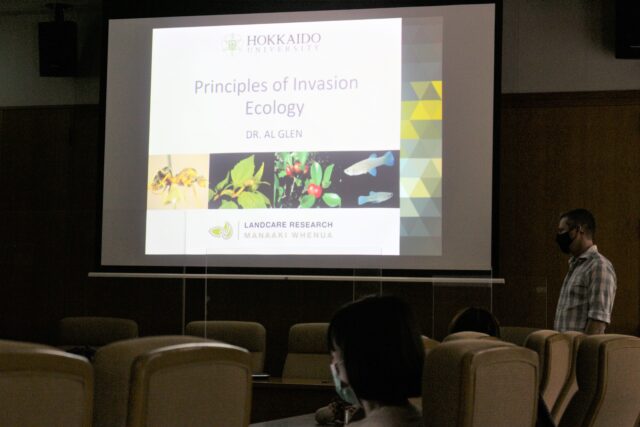
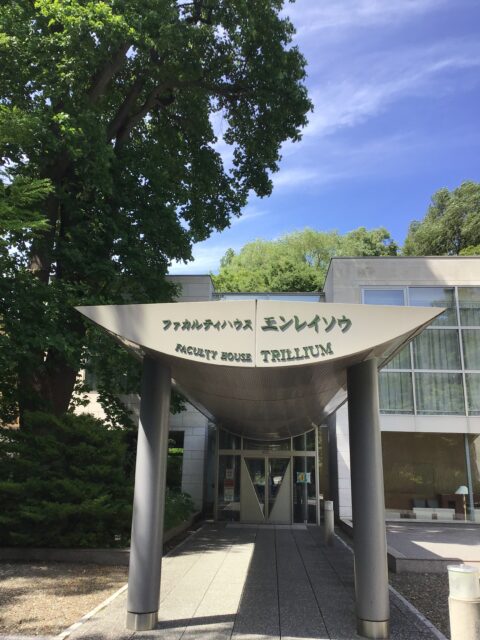
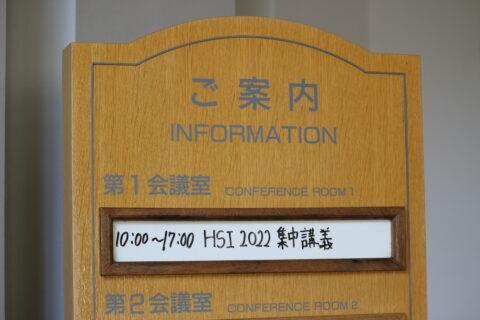
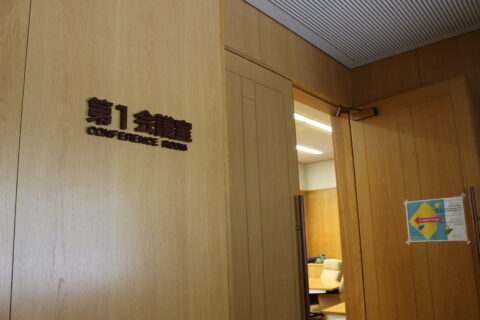
The lecturer for this course was Dr. Al GLEN, who is engaged in cutting-edge research at Landcare Research (Wildlife Ecology & Management) in New Zealand. We have been inviting Dr. Glen as a HSI lecturer since 2017 (cancelled in 2020 due to COVID-19), and were pleased to welcome him once again this year. In recent years, invasive foreign species have adversely affected ecosystems and society, as exemplified by decreases in the number of native species and damage to the health of humans. This course geared toward undergraduates, which was held for the fifth time this year, was aimed at helping participants gain in-depth understanding of not only the current situation surrounding these invasive species and the extent of the damage they do but also causes and countermeasures. Through the lectures, students gained basic knowledge about invasion ecology through numerous slides and videos covering specific cases seen in New Zealand and Australia, as well as those in Japan.
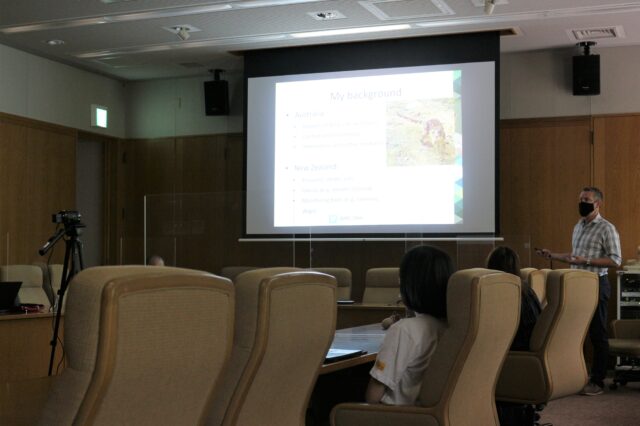 Invited foreign lecturer Dr. Al Glen (Landcare Research, New Zealand)
Invited foreign lecturer Dr. Al Glen (Landcare Research, New Zealand)
The class kicked off with Dr. Glen giving a brief self-introduction, followed by a series of talks about Landcare Research and their cutting-edge research activities. To find foreign species out in the field, researchers team up with dogs with excellent sense of smell. One of his slides showed him with his buddy dog enjoying the vast extent of nature in New Zealand. The lectures then shifted focus to the living mammals, avian species, and plants in New Zealand and Australia while explaining the historical background of why and how various flora and fauna went extinct on another front. Through his slides, Dr. Glen introduced numerous plants and animals including surviving native species, surviving and extinct species that were brought by the first humans, ones that came with the Europeans during the Age of Exploration and the others that disappeared during this time, and the latest invasive foreign species that continue to be imported. Students were surprised to learn that the vegetation decorating the distinctive New Zealand landscape was artificially designed to recreate that of England, and that the biggest native mammal existed before the Age of Exploration was bats.
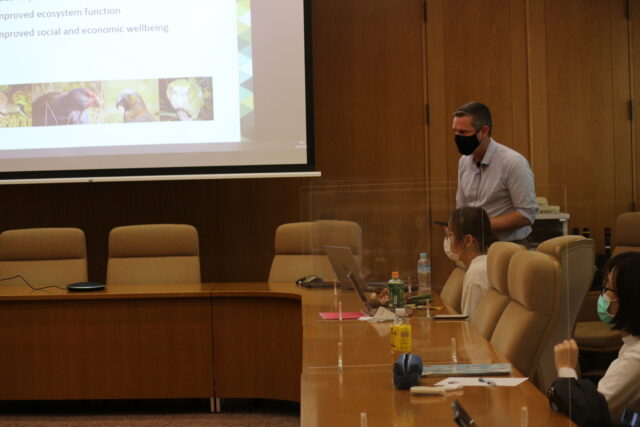 (Dr. Glen showing pictures of native species that were once red-listed but regained population)
(Dr. Glen showing pictures of native species that were once red-listed but regained population)
Although adequate COVID-19 infection control measures were implemented for this course including proper ventilation, sterilization, and the use of face masks, the face-to-face class allowed Dr. Glen to adjust the pace of his lectures more effectively to the actual understanding of his students. When students had questions during the lectures, they were free to ask them during the class or contact the lecturer via e-mail, or were given time for a question-and-answer session during the lecture on the following day. Great care was taken to come up with ways to help students better understand the lectures by minimizing the time they spent in a state of not fully understanding them.
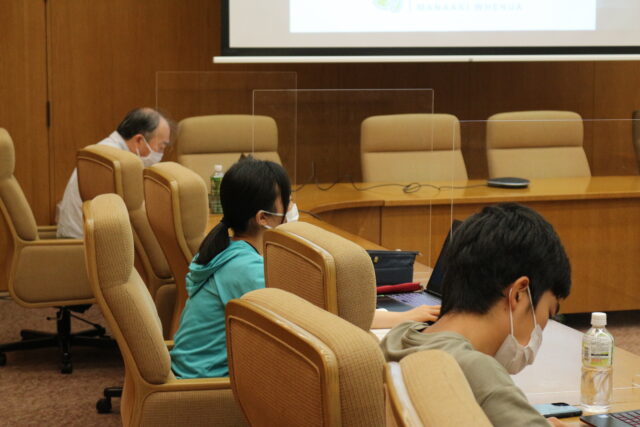 (Preparing classes offered simultaneously online and on-site)
(Preparing classes offered simultaneously online and on-site)
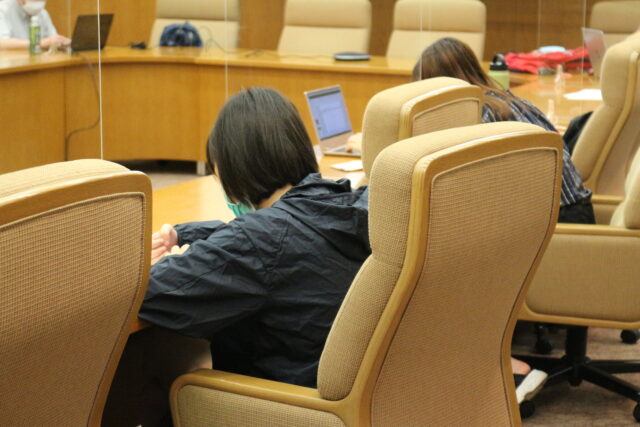 (Rare opportunity for students to have class at conference room with comfortable sofa)
(Rare opportunity for students to have class at conference room with comfortable sofa)
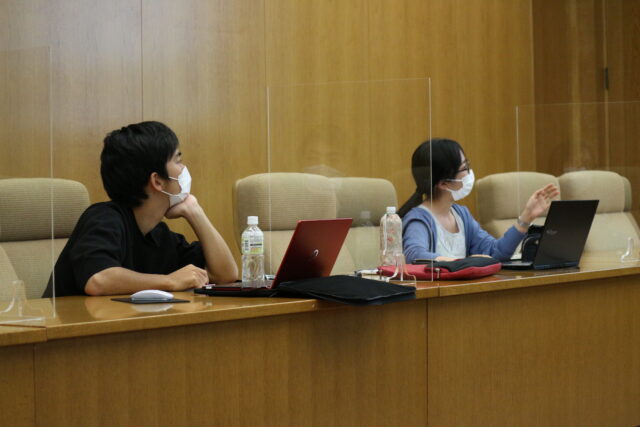 (Students actively asking questions)
(Students actively asking questions)
During the five days of intensive lectures, a daily quiz was given to students at the end of each lecture to confirm how well they understood what they had learned that day. The answers to the quizzes and comments were provided by Dr. Glen and Prof. Ikeda. The daily reviews using ten-question quizzes reflecting the lecture content helped students have a deeper understanding toward the subject.

The HSI courses were offered online for the first time last year. We were pleased to have Dr. Glen back in Sapporo this year and greatly appreciate the tremendous contributions made by him and sufficient coordination and preparation among the instructional staff in charge that enabled the course to be offered onsite at the Faculty House Trillium during this fresh-green summer. Students were able to attend lectures in English, which they are rarely able to do in their regular classes, thereby providing them with a valuable experience.
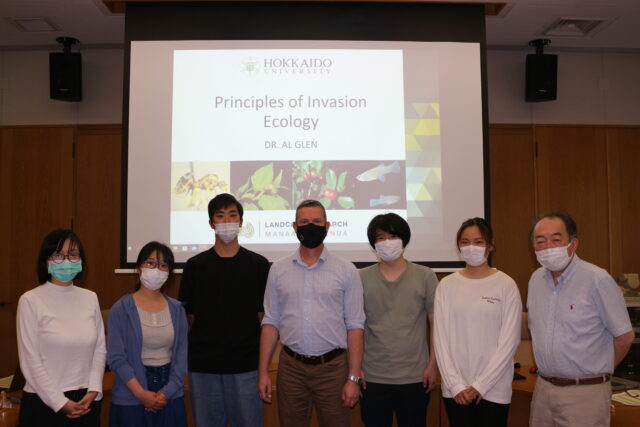
This course is offered in English by a researcher who is active on the front lines of invasion ecology and involved in implementing actual countermeasures. We are hoping to invite Dr. Glen to the lecture here again next year, in the summer of 2023.


